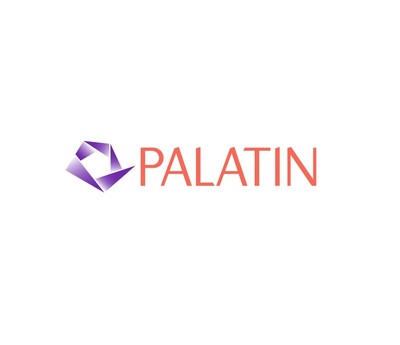PR Newswire
- Last Patient / Last Visit Completed
- Topline Data Readout Expected Later This Quarter
CRANBURY, N.J.
, Feb. 6, 2025 /PRNewswire/ — Palatin Technologies, Inc. (NYSE American: PTN), a biopharmaceutical company developing first-in-class medicines based on molecules that modulate the activity of the melanocortin receptor system, today announced the completion of its Phase 2 BMT-801 clinical study of the co-administration of MC4R bremelanotide + GLP-1/GIP tirzepatide for the treatment of obesity. The last patient enrolled has completed their last visit. Final data collection and quality control will conclude shortly.
Topline data results from the Phase 2 BMT-801 entitled “BMT-801, A Phase II, Randomized, Double-Blind, Placebo-Controlled, Clinical Study Investigating the Safety, Tolerability, and Effectiveness of the Co-Administration of Bremelanotide with Tirzepatide (GLP-1/GIP) for the Treatment of Obesity” are expected later this quarter. The study enrolled a total of 113 patients, with 96 patients randomized. The patient enrollment number is approximately twice the initial target of 60 patients, primarily due to strong patient demand and efficiency at the four U.S. clinical trial sites.
“We are pleased to announce last patient/last visit in our Phase 2 obesity study and look forward to sharing the study data later this quarter,” said Carl Spana, Ph.D., President & Chief Executive Officer of Palatin. “We believe the data from this study will demonstrate that the combination of MC4R + GLP-1/GIP agonists may result in additive and synergistic effects on patient weight loss, and importantly, will inform and support our planned clinical programs and development programs under assessment for treating general obesity, weight loss management, acquired and congenital hypothalamic obesity, and potentially, rare/orphan genetically caused MC4R pathway diseases.”
“There is a clear and unmet medical need for alternative mechanisms of action that can provide physicians and patients with improved overall health outcomes in the pursuit of weight loss beyond those achieved with GLP-1 and GIP drugs,” continued Dr. Spana. “The MC4R pathway plays a key role in eating behavior and how our bodies manage energy. As a result, we believe that MC4R agonists, especially the highly selective MC4R long-acting peptides and oral small molecule agonists we are developing, will play an important role for treating obesity as monotherapy and/or combination therapy.”
The primary endpoint of the Phase 2 BMT-801 clinical trial is to demonstrate the safety and efficacy of co-administration of bremelanotide with tirzepatide on reducing body weight. Patients were treated with tirzepatide-only for four weeks, had eligibility confirmed, then were randomized to one of four treatment regimens. Patients underwent multiple assessments of safety and efficacy to help profile the effectiveness of bremelanotide in treating general obesity as a stand-alone treatment or in conjunction with GLP-1/GIP therapy. Additional trial information can be found at https://clinicaltrials.govvia the identifier NCT06565611.
About Melanocortin 4 Receptor Agonists Effect on Obesity
Genetic analysis has identified the melanocortin 4 receptor (MC4R) of the paraventricular nucleus of the hypothalamus as playing a central role in appetite regulation. Genetic mutations that inhibit signaling in the MC4R pathway lead to hyperphagia, decreased energy expenditure and early-onset obesity; such mutations have been identified as the cause of several rare genetic obesity disorders. Agouti-related peptide is an endogenous antagonist of the MC4R that works with neuropeptide Y to stimulate appetite, whereas MC4R agonists such as α- and β-melanocyte-stimulating hormone promote satiety. MC4R agonism represents an attractive target for potential obesity treatments.
About Melanocortin Receptor Agonists
The melanocortin receptor (“MCR”) system has effects on inflammation, immune system responses, metabolism, food intake, and sexual function. There are five melanocortin receptors, MC1R through MC5R. Modulation of these receptors, through use of receptor-specific agonists, which activate receptor function, or receptor-specific antagonists, which block receptor function, can have medically significant pharmacological effects.
About Palatin
Palatin is a biopharmaceutical company developing first-in-class medicines based on molecules that modulate the activity of the melanocortin receptor systems, with targeted, receptor-specific product candidates for the treatment of diseases with significant unmet medical need and commercial potential. Palatin’s strategy is to develop products and then form marketing collaborations with industry leaders to maximize their commercial potential. For additional information regarding Palatin, please visit Palatin’s website at www.Palatin.com and follow Palatin on Twitter at @PalatinTech.
Forward-looking Statements
Statements in this press release that are not historical facts, including statements about future expectations of Palatin Technologies, Inc., such as statements about Palatin products in development, clinical trial results, potential actions by regulatory agencies, regulatory plans, development programs, proposed indications for product candidates, and market potential for product candidates are “forward-looking statements” within the meaning of Section 27A of the Securities Act of 1933, Section 21E of the Securities Exchange Act of 1934 and as that term is defined in the Private Securities Litigation Reform Act of 1995. Palatin intends that such forward-looking statements be subject to the safe harbors created thereby. Such forward-looking statements involve known and unknown risks, uncertainties and other factors that could cause Palatin’s actual results to be materially different from its historical results or from any results expressed or implied by such forward-looking statements. Palatin’s actual results may differ materially from those discussed in the forward-looking statements for reasons including, but not limited to, results of clinical trials, regulatory actions by the FDA and other regulatory and the need for regulatory approvals, Palatin’s ability to fund development of its technology and establish and successfully complete clinical trials, the length of time and cost required to complete clinical trials and submit applications for regulatory approvals, products developed by competing pharmaceutical, biopharmaceutical and biotechnology companies, commercial acceptance of Palatin’s products, and other factors discussed in Palatin’s periodic filings with the Securities and Exchange Commission. Palatin is not responsible for updating events that occur after the date of this press release.
Palatin Technologies® is a registered trademark of Palatin Technologies, Inc.
![]() View original content to download multimedia:https://www.prnewswire.com/news-releases/palatin-completes-phase-2-obesity-study-with-mc4r-bremelanotide-plus-glp-1gip-tirzepatide-302369916.html
View original content to download multimedia:https://www.prnewswire.com/news-releases/palatin-completes-phase-2-obesity-study-with-mc4r-bremelanotide-plus-glp-1gip-tirzepatide-302369916.html
SOURCE Palatin Technologies, Inc.


